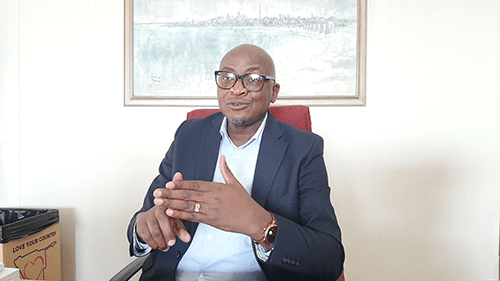SWAKOPMUND – Swakopmund municipality CEO Archie Benjamin has said running a town is not rocket science but having leadership that wants to make a difference is crucial for success.
Benjamin was reflecting on the achievements of Swakopmund as the town is celebrating its 130 years in existence this month.
Swakopmund has in the past five years made significant strides in terms of development and is the first town in Namibia that has an approved result-driven structural plan, which focuses on all aspects of integrated development.
“We are lucky that our council consists of six different political parties, that have the same goal. They prioritise set targets and agree on where they want to take the town. This makes our job as administrators very easy as we only have one goal, which is to execute recommendations taken,” Benjamin said.
According to him, the administration strives to carry out all tasks although they also have challenges.
Benjamin said although funding is in many cases an issue, Swakopmund residents developed a culture of paying for services and the money is reinvested in development.
“People are under the impression that high-income earners and businesses are the ones paying for services on time. In our case you would be surprised that it is ordinary residents such as pensioners that pay for services on time,” the CEO said.
Structural plan
In 2019, Swakopmund was looking at how the town can sustain itself long-term apart from relying on tourism activities.
He said the idea was to make sure that all open spaces were identified and development is aligned in all corners of the town.
Benjamin explained that the overall aim is to transform Swakopmund into a smart city as the plan aims to create liveable spaces by supporting town planning, urban design, architecture and engineering-driven approaches that promote city development based on the continued philosophy to create human spaces while also creating opportunities for land use diversification.
This approach, he said is successfully used in cities such as Copenhagen, which has gained worldwide recognition in terms of being a model city.
“It incorporates the principles of development. One can note that Swakopmund has expanded on the western and eastern sides. However, the eastern side expanded in the form of informal settlements that clearly show development was unequal. Now the structural plan will make sure that development takes place equally to align the eastern side with the western side of the town.” According to Benjamin, the plan also incorporates various development components such as health, sport, education and tourism. He said they also attract foreign and local investors by offering incentives when setting up factories and other business activities that can also create jobs for the people.
Outgoing Swakopmund mayor Louisa Kativa also said the drive to develop the town is manifested in projects such as the state-of-the-art N$1.6 billion Swakopmund School of Engineering, Marine, Logistics and Health Sciences centre that will be constructed in the town.
The N$42 million International University of Management (IUM) research, training and conference centre is also being constructed in Swakopmund.
“Other developments include the construction of a primary school in Matutura, upgrading of roads, sports stadia, the construction of affordable houses as well as the upgrading of the DRC settlement,” she said.



